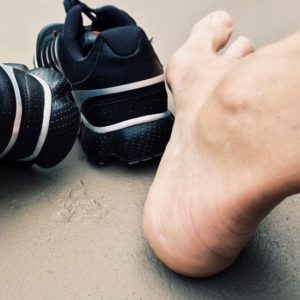 Got gout? If so, here’s an important tip for surviving the holidays: Watch what you eat and drink.
Got gout? If so, here’s an important tip for surviving the holidays: Watch what you eat and drink.
Changes in diet, including overindulging in certain foods and beverages, can cause gout attacks this time of year.
Gout attacks are extremely painful. They are caused when uric acid accumulates in the tissues or a joint and crystallizes. This most commonly occurs in the big toe joint but can occur in other parts of the foot, ankle and leg. Gout is a disease that results from an overload of uric acid in the body. This leads to the formation of tiny crystals of urate that deposit in tissues of the body, especially the joints. When crystals form in the joints, the result is recurring attacks of joint inflammation by deposition of uric acid crystals in the joint fluid.
This intense joint inflammation elicits an immune response, causing white blood cells to engulf the uric acid crystals. In doing this, inflammatory chemical messengers are released, leading to pain, heat and redness of the joint tissues. As gout progresses, the attacks of gouty arthritis typically occur more frequently and, often, in additional joints.
This is most common in the big the toe because it is the coolest part of the body, furthest away from your core, and uric acid is sensitive to temperature changes. In addition to causing foot pain, this can also affect kidney function.
Foods that are high in purines contribute to uric acid build-up. People who are prone to gout attacks should avoid purine-rich items such as shellfish (shrimp, crab, etc.), organ meats (kidney, liver, etc.), red meat, red wine and beer. All the things that we look forward to enjoying during the holiday season. So, if we choose to indulge, moderation is the key.
Gout can be treated with medications, diet changes, increasing consumption of appropriate fluids and immobilizing the foot. In some cases, surgery is required to remove the uric acid crystals and repair the joint. FBN
By Anthony Rosales, DPM
For more information on gout, visit the ACFAS consumer website, FootHealthFacts.org, or contact Dr. Rosales’s office at Flagstaff Foot and Ankle, 412 N. Humphreys Street.
Dr. Anthony Rosales, DPM, FACFAS, is a member of the American College of Foot and Ankle Surgeons (ACFAS) with offices in Flagstaff and Page. He earned his medical degree from the Ohio College of Podiatry and has been practicing in Flagstaff for the past 13 years, specializing in providing outstanding family foot care. For more information, call 928-774-4825.







